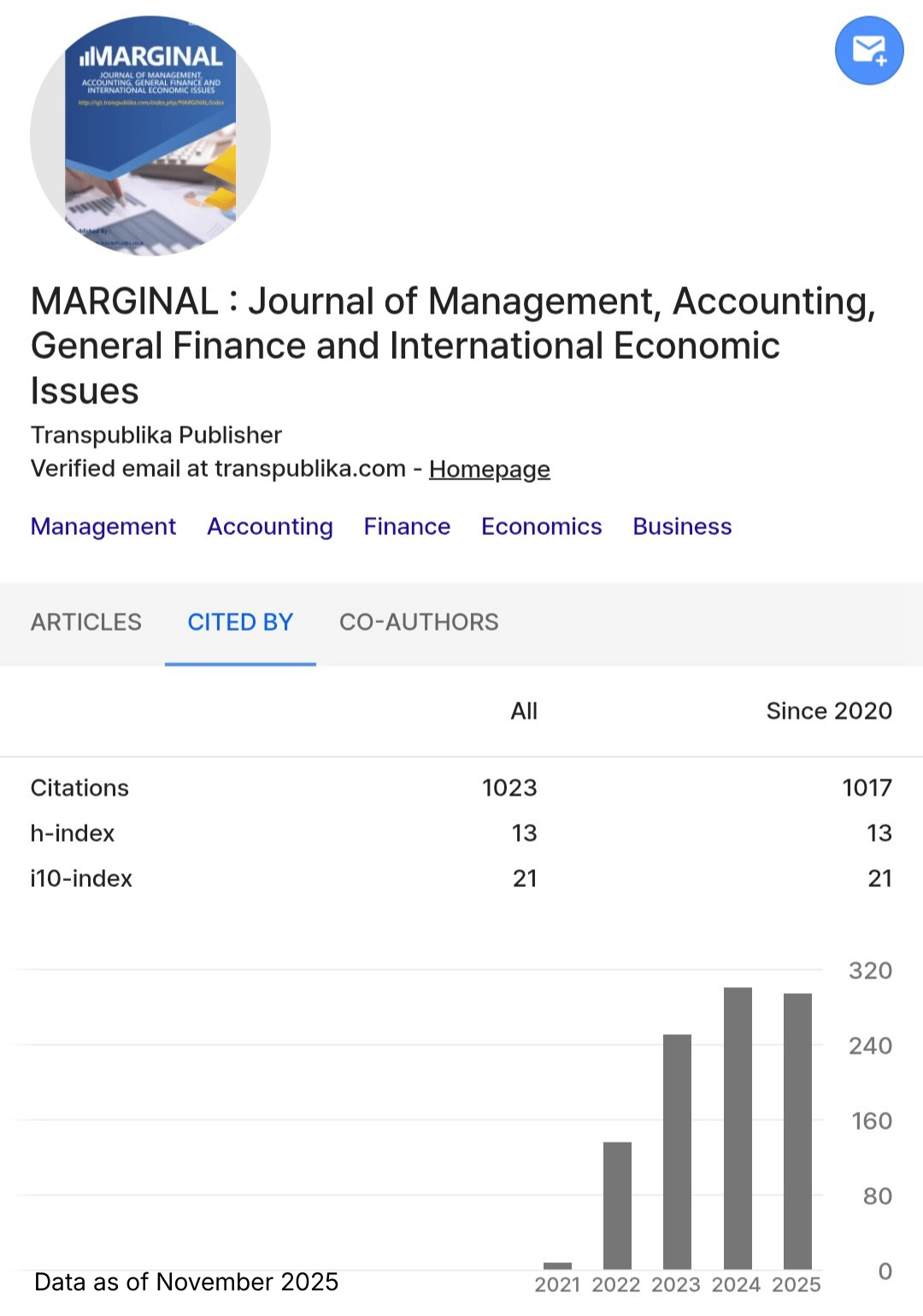THE INFLUENCE OF CAPITAL INTENSITY AND INDEPENDENT COMMISSIONERS ON TAX AGGRESSIVENESS
Main Article Content
Fitriyah*
Tax avoidance involves strategies aimed at reducing tax obligations, which can have an impact on both national revenues and corporate governance. Companies with high capital intensity tend to employ tax planning techniques that may lead to more aggressive tax positions. The presence of independent commissioners can provide impartial oversight, thereby improving governance and potentially discouraging aggressive tax practices. This research seeks to investigate the influence of Capital Intensity and Independent Commissioners on Tax Aggressiveness within the property and real estate sector companies listed on the Indonesia Stock Exchange (IDX) between 2017-2021. Employing a quantitative approach, the study utilized purposive sampling to select 8 companies with 5 years of financial data, resulting in a total sample size of 40 samples that met specific criteria. Financial statement data was analyzed using various statistical tests, model estimation methods, and regression analyses. The findings suggest that both Capital Intensity and Independent Commissioners collectively impact Tax Aggressiveness, although individually they do not have a significant effect.
Bendickson, J., Muldoon, J., Liguori, E., & Davis, P. E. (2016). Agency theory: the times, they are a-changin’. Management Decision, 54(1), 174–193. https://doi.org/10.1108/MD-02-2015-0058
Erlina, M. (2021). Pengaruh Likuiditas, Profitabilitas, Ukuran Perusahaan, Komisaris Independen Terhadap Agresivitas Pajak Dan Pengungkapan Csr Sebagai Moderasi. Jurnal Administrasi Bisnis, 17(1), 24–39.
Fadillah, A. N., & Lingga, I. S. (2021). Pengaruh Transfer Pricing, Koneksi Politik dan Likuiditas Terhadap Agresivitas Pajak (Survey Terhadap Perusahaan Pertambangan yang Terdaftar di BEI Tahun 2016-2019). Jurnal Akuntansi, 13(2), 332–343.
Gemilang, D. N. (2017). Pengaruh Likuiditas, Leverage, Profitabilitas, Ukuran Perusahaan dan Capital Intensity Terhadap Agresivitas Pajak Perusahaan. Skripsi Akuntansi Fakultas Ekonomi Dan Bisnis Institut Agama Islam Negeri Surakarta.
Hati, L. A. D. (2011). Telaah literatur tentang faktor-faktor yang mempengaruhi konservatisme akuntansi. Jurnal Ekonomi Dan Pendidikan, 8(2).
Hidayat, T.A.,Fitria, E. F. (2018). Pengaruh Capital Intensity, Inventory Intensity, Profitabilitas Dan Leverage Terhadap Agresivitas Pajak. Eksis, 13 (2), 157 – 168.
Indradi, D. (2018). Pengaruh Likuiditas, Capital Intensity Terhadap Agresivitas Pajak (Studi empiris perusahanManufaktur sub sektor industri dasar dan kimia yang terdaftar di BEI tahun 2012-2016.). JABI (Jurnal Akuntansi Berkelanjutan Indonesia), 1(1), 147–167.
Neno, N., & Irawati, W. (2022). Pengaruh Corporate Social Responsibility, Capital Intensity, Dan Corporate Governance Terhadap Agresivitas Pajak. Jurnal Akuntansi Barelang, 6(2), 35–50.
Ross, S. A., Westerfield, R. W., Jordan, B. D., Lim, J., & Tan, R. (2015). Introduction to corporate finance. Jakarta: Salemba Empat.
Spence, M. (1978). Job market signaling. In Uncertainty in economics (pp. 281–306). Elsevier.
Sugiyono. (2017). Metode Penelitian Bisnis: Pendekatan Kuantitatif. Kualitatif, Kombinasi, Dan R&D.
Sulastri, S., & Anna, Y. D. (2018). Pengaruh financial distress dan leverage terhadap konservatisme akuntansi. Akuisisi, 14(1), 59–69.
Sumantri, I. I. (2018). Pengaruh Insentif Pajak, Growth Opportunity, dan Leverage Terhadap Konservatisme Akuntansi. Jurnal Ilmiah Akuntansi Universitas Pamulang, 6(1), 122–145.




















